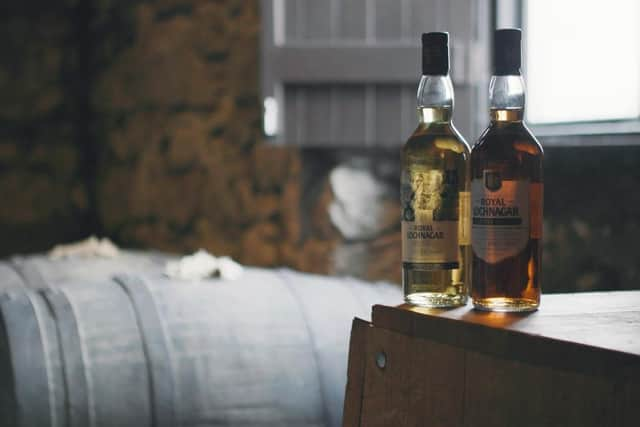Ukraine-Russia conflict: 'Scotland must stop all exports with Russia', says SNP
Industries such as whisky and cashmere producers are being urged by the SNP to join the international community in sanctioning Russia.
The SNP has asked Scottish companies to join other corporations such as Shell and BP, which have pulled funding out of Russia and firms with ties to the country following the Ukraine invasion.
Advertisement
Hide AdAdvertisement
Hide AdScotland’s Finance Secretary has also urged businesses to withdraw investments and stop trading in Russia in a bid to “cripple Putin’s economy”.


Kate Forbes said companies had a “moral responsibility” to boycott Russia despite the financial implications it may cause them.
Scottish Government data shows £245 million of goods and services were sold to Russia in 2019.
However, this Russian market is relatively small in comparison to the £6 billion sold to the US.
Separate HM Revenue and Customs data suggested Scotland exported £121m to Russia and imported £200m.
SNP MSP Fiona Hyslop said: “Scotland can take a lead here by companies stopping Russia from importing their products, sending a clear message that Scotland completely condemns the actions of the Russian government and they will suffer consequences as a result.
“Some of Scotland’s most vital export industries have markets in Russia, but if they continue to allow exports then it will only further fund the Russian war machine that is bringing untold horror to the people of Ukraine.”
Scotland directly exports £28m (42 million bottle equivalent) of whisky to Russia, according to the Scotch Whisky Association.
Ukraine meanwhile received £3.3m of whisky.
Advertisement
Hide AdAdvertisement
Hide AdHowever, Scottish salmon has been banned in Russia since 2014 in retaliation against EU sanctions after it annexed Crimea.
Commenting on the escalating situation in Ukraine, a spokesperson for the Scotch Whisky Association said: “Our thoughts are with all those affected and displaced by the conflict.
“The welfare of industry employees working in Ukraine and Russia is paramount.
"We continue to closely monitor the situation and pass on any relevant government guidance on exports to our members.”
The call to stop trade to Russia from the SNP comes as Shell is to exit its joint ventures with Russian state energy firm Gazprom (worth about $3bn), after BP said it would offload its 20 per cent stake in Kremlin-owned oil firm Rosneft.
Shell will also end its involvement in the Nord Stream 2 pipeline project, in which it holds a 10 per cent stake worth $1bn [£750m].
Ms Hyslop said: “We have already seen severe sanctions on Russia from large corporations and Scottish business can play its part by also placing their own sanctions on the country by stopping doing business with Russia. A serious trade embargo should cover exports as well as imports.
“We all have a role to play, no matter how big or small, and Scottish exporters can hold back Scotland’s world-class produce to send a message that we stand in solidarity with Ukraine.”
Advertisement
Hide AdAdvertisement
Hide AdThe UK Government, alongside introducing sanctions for major Russian banks, is fast-tracking legislation to target money laundering by foreign oligarchs.
SNP Westminster group leader Ian Blackford criticised the Prime Minister for allowing a “sewer of dirty Russian money” to run through Britain because oligarchs had donated to the Conservative party.
